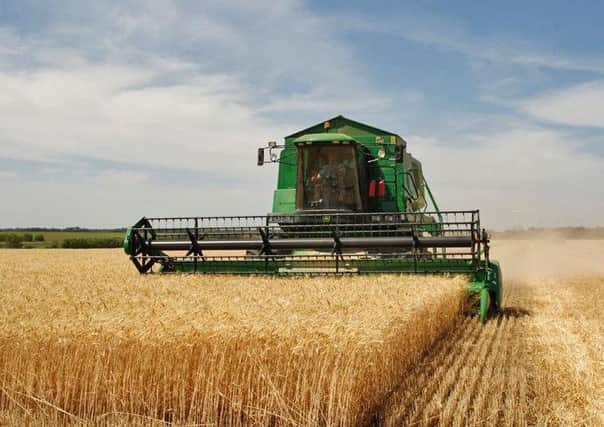Tommy Sheppard: Tories won't grab our powers without a fight


Meanwhile the UK Government says we’re scaremongering. What power grab, say the Tories? They claim that the Scottish Government will get more powers after Brexit and not a single power it currently has will be removed. Is this true? Let’s see.
It is true that the Scottish Parliament will have responsibility for more things if Brexit happens. The problem is it’ll have a lot less power to do anything about them. The UK government is proposing that in 24 of the most significant and important areas – including the environment, agriculture and fishing – what Scotland does will need UK approval.
Advertisement
Hide AdAdvertisement
Hide AdWe have yet to see the details of how UK frameworks might operate in these areas. But we know the principles on which they’ll be based. And the principles are the problem.


Imagine a joint committee to co-ordinate agricultural policy, for example. On that committee the interests of Scottish and Welsh farmers would be represented by the Scottish and Welsh governments. Since there is no English national government the interests of English farmers would need to be represented by the Department of Food and Rural Affairs, a department of the UK Government.
So, what happens in a disagreement? Well, the UK Government position is that DEFRA will have the final say. It will be the judge and jury in resolving any disputes. That means, in effect, that the wishes of the industry in England will prevail and the other nations of the UK will be subservient to them.
Does this really matter? Yes, it does. It means for example, that if the Scottish Government wants to have a ban on GM crops to protect the reputation of Scotland’s larder, but English farmers wish a more relaxed policy, Scotland will lose out.
Advertisement
Hide AdAdvertisement
Hide AdAfter years of lobbying, the Scottish Government secured recognition of Scotland’s crofting industry and now uses EU CAP funds to support bespoke schemes. But this may not get the support of a committee dominated by large commercial farming interests in England.
And that’s only agriculture: there are 23 other policy areas where the same thing applies.
None of this is to suggest that people in England shouldn’t have control of things in their own country – of course they should. But the UK Government cannot be both England’s representative and the arbiter of disputes. It’d be fairer to have an independent disputes procedure. But that suggestion by the Scottish Government was dismissed by the UK – just one of the reasons discussions on post-Brexit arrangements are at an impasse.
In these areas after Brexit Westminster will control the operation not only of new powers being repatriated from the EU, but existing ones that have been executed in Scotland without hindrance for decades. That’s why we call it a power grab. You’ll hear people say that the reason why Scotland mustn’t be able to decide its own policies on agriculture or the environment is that it might somehow jeopardise UK trade deals.
Advertisement
Hide AdAdvertisement
Hide AdWhat nonsense. Are we really being told that a trade deal with the US or any other country cannot include a clause that recognises that the legislative framework in a relevant area is different in Scotland?
Perhaps the only area where trade is a relevant consideration is government operations and procurement itself. And there’s the rub. Should the Scottish Government be able to choose to exempt our NHS from private competition, for example?
Brexit could provide the opportunity to put these decisions in the hands of the government people in Scotland elected. But not with the EU Withdrawal Bill as currently drafted. So, we’ll keep up the arguments, inside or outside the House of Commons.
Tommy Sheppard is the SNP MP for Edinburgh East